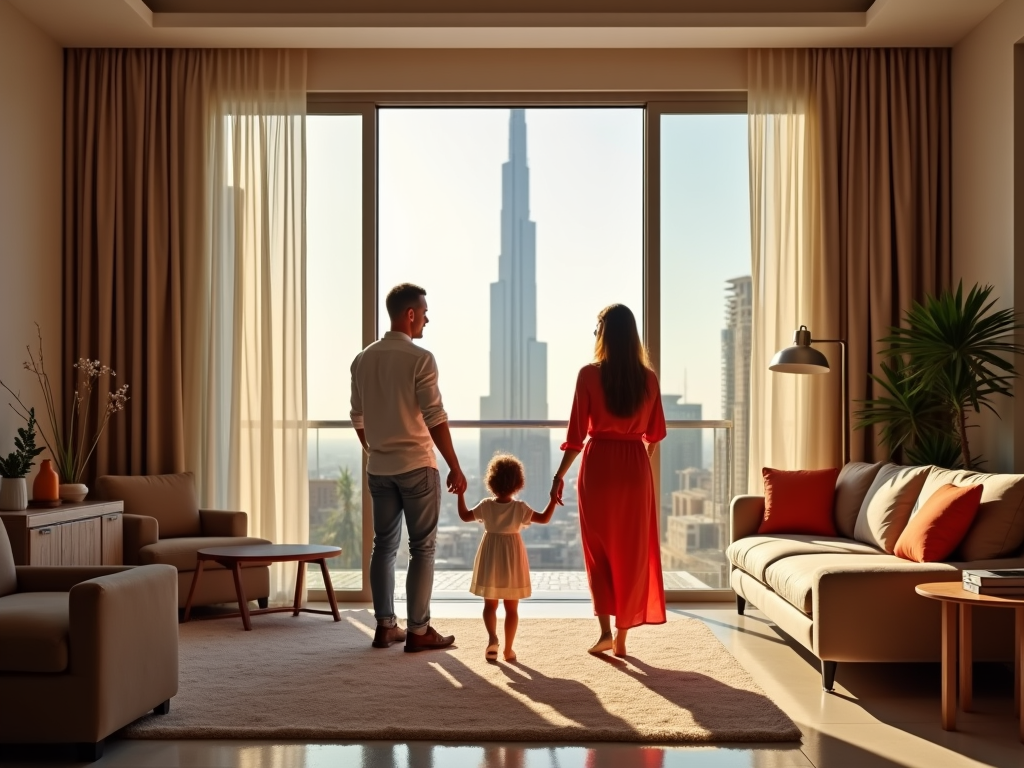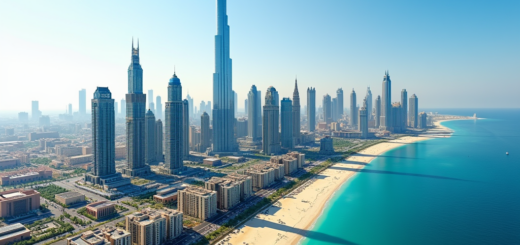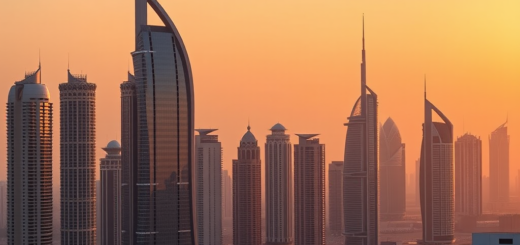The Benefits of Investing in Dubai’s Real Estate Sector
Investing in Dubai’s real estate sector presents numerous advantages for both seasoned investors and first-time buyers. With its thriving economy, strategic location, and a property-friendly environment, Dubai has become a global hub for real estate investment. In this article, we will explore the unique benefits that make Dubai a desirable destination for property investors, including attractive rental yields, tax advantages, and a stable economic framework.
Attractive Rental Yields

One of the main benefits of investing in Dubai’s real estate is the appealing rental yields it offers. Compared to other major cities around the world, Dubai stands out for its investment potential. Investors can expect to earn substantial returns on their properties, often ranging between 7% to 10% annually. This high yield can be attributed to several factors, including:
- High demand: Dubai’s rapidly growing population and influx of expatriates create a constant need for rental properties.
- Tourism: The city is a popular tourist destination, contributing to a thriving short-term rental market.
- Government initiatives: Policies aimed at attracting foreign investment bolster property demand.
- Variety of options: Whether it’s luxury apartments, villas, or commercial spaces, Dubai offers diverse properties to cater to varied demographics.
These factors combined make Dubai an attractive location for investors seeking to maximize their portfolio’s returns.
Tax Advantages

Another significant benefit of investing in Dubai’s real estate sector is the tax-friendly environment. The UAE is known for its low tax regime, which makes it an advantageous place for investors. Key tax benefits include:
- No property tax: Dubai does not impose property tax on residential properties.
- No income tax: Rental income is tax-free, meaning investors can retain their full earnings.
- Low registration fees: Fees associated with buying property in Dubai are comparatively low, translating to overall cost savings for buyers.
- Incentives for foreign buyers: Recent government initiatives have further simplified ownership processes, including long-term residency visas for property investors.
These tax incentives contribute to the overall attractiveness of Dubai as a prime location for real estate investment.
Stable Economic Framework
Dubai’s stability is a crucial component that makes it an appealing market for investors. Boasting a diverse economy with robust growth driven by sectors like tourism, aviation, trade, and finance, Dubai showcases excellent resilience against global economic fluctuations. The following points highlight key aspects of this stable framework:
- Government support: The UAE government consistently implements policies to ensure economic stability and growth.
- Investment in infrastructure: Continuous improvements in transport, healthcare, and other essential services strengthen the investment environment.
- World-class amenities: Dubai ranks high in quality of life, attracting both businesses and residents alike.
- Global events: Major events such as Expo 2020 continue to boost international interest in the city.
Overall, this stable economic framework provides a secure foundation for investors looking to benefit from long-term property appreciation.
Market Diversification
Investing in Dubai allows investors to diversify their portfolios effectively. The city’s real estate market accommodates various investment strategies catering to different risk profiles and investment goals. Investors can take advantage of this diversity in several ways:
- Residential properties: Ideal for individual investors seeking passive income through long-term tenancies.
- Commercial properties: Attract business owners and investors seeking higher returns through retail and industrial spaces.
- Luxury real estate: Opportunities in high-end properties allow investors to tap into affluent clientele.
- Off-plan properties: Buying before completion can yield higher appreciation values upon project completion.
This level of market diversity makes it easier for investors to protect their portfolios against economic uncertainties.
Итог
Investing in Dubai’s real estate sector offers a wealth of benefits, from high rental yields and appealing tax advantages to a stable economic framework and robust market diversification options. The combination of these factors creates a unique investment landscape that is highly attractive to both domestic and international investors. As Dubai continues to grow and develop, those who decide to invest now may find themselves reaping substantial rewards in the future.
Часто задаваемые вопросы
1. What are the essential steps to invest in Dubai’s real estate?
The essential steps to invest include researching the market, selecting a property type, understanding legal requirements, securing financing, and completing the transaction through a registered real estate agent.
2. Is it necessary for foreign investors to obtain a residency visa?
No, it is not necessary for foreign investors to obtain a residency visa; however, investors buying property worth AED 2 million or more can apply for a long-term residency visa.
3. What is the average return on investment for rental properties in Dubai?
Average rental yields in Dubai range from 7% to 10%, depending on the property location and market conditions.
4. Are there any hidden costs associated with buying property in Dubai?
Yes, potential hidden costs may include maintenance fees, community service charges, and transaction fees such as the Dubai Land Department fee and broker commissions.
5. How is property ownership structured in Dubai?
Property ownership in Dubai is classified into freehold and leasehold. Freehold properties allow for full ownership, while leasehold properties typically offer ownership for a longer lease duration, usually up to 99 years.


